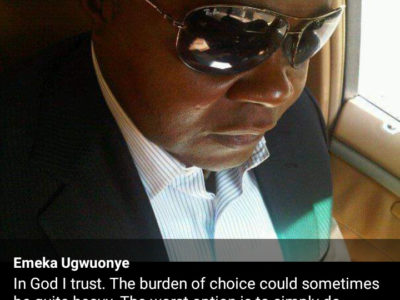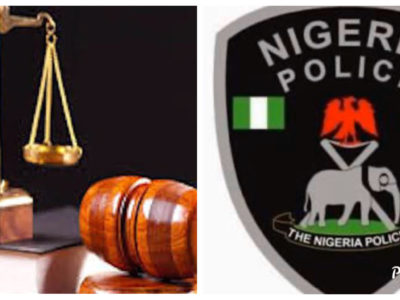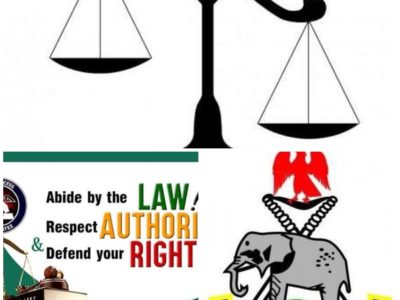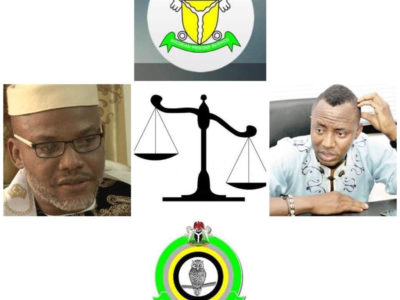Different ways different governments worry about facebook, etc
One wonders if you had noticed so much discussion going on in America and Europe over the impact of the tech giants like Google, Facebook, etc. These are impacts on privacy, liberty, free speech, control on personal choices, crime, etc. In fact, the countries where these tech giants originated are very concerned and they feel a need to control the tech giants through regulation.
Equally, the governments of Africa, like Nigeria's, are concerned about the effect of the technological resources controlled by the tech giants. But Nigeria is not seeking to control the tech giants, which they cannot do. Instead, Nigerian government is seeking to control its citizen's use of the technology. Hence, Nigeria is experimenting with a new law that will make hate speech a capital offense, a wholly terrible idea.
Regarding the approaches adopted by various governments, there is the question of the user or consumer attitude and dependency. Do the consumers understand the actual and potential dangers of the use of these tech services? Apparently not, especially in developing countries such as Nigeria.
The worst harm coming from the services of the tech giants is the effect of fake news. A wholly false story could be peddled against a person or group or about a situation . Such manipulative and malicious contents influence people's real judgment and decisions about a person or group. The consequence could be devastating both to the target and the society.
As is now apparent, state actors and powerful companies have used manipulative contents and fake accounts to generate fake news that have toppled governments and changed the outcome of elections. Also, on smaller scales, fake news and manipulative contents have been used to attack individuals.
One interesting example of this was Sahara Reporter's false stories about Attorney Emeka Ugwuonye, a Nigerian-American lawyer, and Founder of DPA. Sahara Reporters falsely published that Ugwuonye was disbarred in the United States (No judgment of disbarment was ever tendered, and most people did not understand that a person cannot be disbarred without a final judgment by the highest court in the jurisdiction, which is the court that grants the license to practice as a lawyer). Also, after a while, Sahara Reporters began to report that Ugwuonye was disbarred in Nigeria. All these were false but with devastating consequences.
Who needs protection from the manipulative contents spread through Facebook and co? Different governments adopt different approaches. America and Europe want to protect consumers. But third world governments such as Nigeria, Iran, etc want to protect government and government officials. In Emeka Ugwuonye's case, the Nigerian government used fake news against Ugwuonye to deflect Ugwuonye's legitimate criticism of government. Nigerian Government officials are not interested in protecting the user/consumer, but rather in protecting themselves. Hence Nigeria's hate speech law. It will be an extraordinary complexity for a country like Nigeria to effectively regulate hate speech. Every criticism of government will arm the police with another opportunity to extort money from citizens.
A probably better approach is to educate the users and consumers on the dangers of abuses in the system. Also, the tech giants should do a lot more of self-policing. Facebook closed five billion fake accounts in 2019 alone. These were accounts created with fake or false identities. They should also respond better to fake contents, aside from fake accounts.
All in all, the dangers of fake accounts and malicious and manipulative contents otherwise known as fake news cannot be over-emphasized.
Why is it that the Abuja judiciary will not do anything about police atrocities?
The cost of correcting the blunders created by the police in Abuja
No going back in our determination to expose atrocities by Nigerian police
Can you believe that some of the judges could not control their tears when they got to abattoir?
Addendum toDPA recommendations to National Assembly on justice reform: The courts should bear the cost of transporting prison inmates from correctional facilities to the courts for trial
Currently, the cost of transporting prison inmates from various correctional facilities to the various courts for trials is borne by the Prison Service (Correctional Service).
Who are the inmates that have to be transported to courts for trial? These are people that the courts failed to admit to bail. They are called the untried inmates or awaiting trial inmates. In the earlier part of our report, we have shown that the courts have been largely reckless, irrational and inefficient in the manner they handle bail hearings, which led to the fact that 80% of prison inmates are awaiting trial cases. The reckless and dysfunctional manner in which judges deal with bail applications has profound cost implications. First, it means that 80% of prison inmates needs to be transported to court at somebody's expense. This requires each correction center to maintain a fleet of vehicles, personnel and security for the movement of inmates to and from courts each day. We do not have precise cost figures. But apart from feeding the inmates, the costs of taking them to court is probably the second highest expenditure category in the recurrent part of the prisons budget. Assuming that the cost per annum of transporting prisoners to court in the FCT Abuja area is 500 million naira, cutting in half the number of awaiting trial inmates will save 250 million naira in Abuja alone. That amount can go toward better and improved conditions of service for prison staff, and better facilities for reforming convicted inmates. Another manner in which the courts impose logistical costs on the prisons is by inordinate delays of trials. It compounds the problem of mishandling of bail applications. That is: the court has remanded a person in prison who ought to have been on bail. And then by failing to try the person in a timely manner, the court prolongs the period of time the person is incarcerated. This compounds the associated costs. We can extrapolate to the wider problems caused by the failings of the judiciary in this regard such as the general cost of keeping inmates in correctional facilities for a long time. However, we limit our analysis here to the cost of transporting inmates to courts for their trial. The question here is: Where do you place the cost of the inefficient behavior of the judiciary? At present, that cost is placed on the prisons. It is always inefficient when costs are not located in the same place as the source of the action or decision that gave rise to the costs. Unless the agency that makes the cost decisions is made to bear the cost, the decisions cannot be efficiently made. If the FCT judiciary is made to bear the 500 million estimated annual cost of transporting inmates from prison to courts, the attitude of the courts toward bail applications will change dramatically. If the cost of transporting inmates to courts were made to compete with the cost of welfare and vacation and medical allowances of judges, the judiciary will immediately reassess its attitude toward bail applications and the length of time it takes a court to conclude a standard case. Currently, some prisons don't have vehicles to take inmates to courts. Keffi prison, for instance, takes inmates to courts only twice a week. The courts are not aware of this. So, on a day the prison is not able to bring an inmate to court, the judge will just adjourn the case to next month. But the date of the next adjournment may be another day the prison will not have a vehicle. This could go on for six months without the prisoner ever being to court. But assuming it is the court that arranges the transportation of the inmate, this sort of waste will likely not occur. DPA therefore suggests changes that will be necessary to make the courts bear the cost of bringing to court the person they could not release on bail. When a person has not been convicted, he belongs to the courts and not to the prisons. It should be the responsibility of the courts to bring the person from prison to court and back until the end of his trial or until the court grants him bail. This is what obtains in some other countries including Britain. This recommendation calls for a redefinition of the relationship between the courts and the prisons. Currently, the prisons are blaming the courts for congestion and costs of transporting inmates to courts, and the courts are blaming the prisons for either not bringing the inmates to courts for trials or for not bringing them on time. This situation will change if the courts bear the cost of its actions and decisions in this regard. This will lead to greater efficiency and improved justice in Nigeria. By the Due Process Advocates Foundation (DPA).









